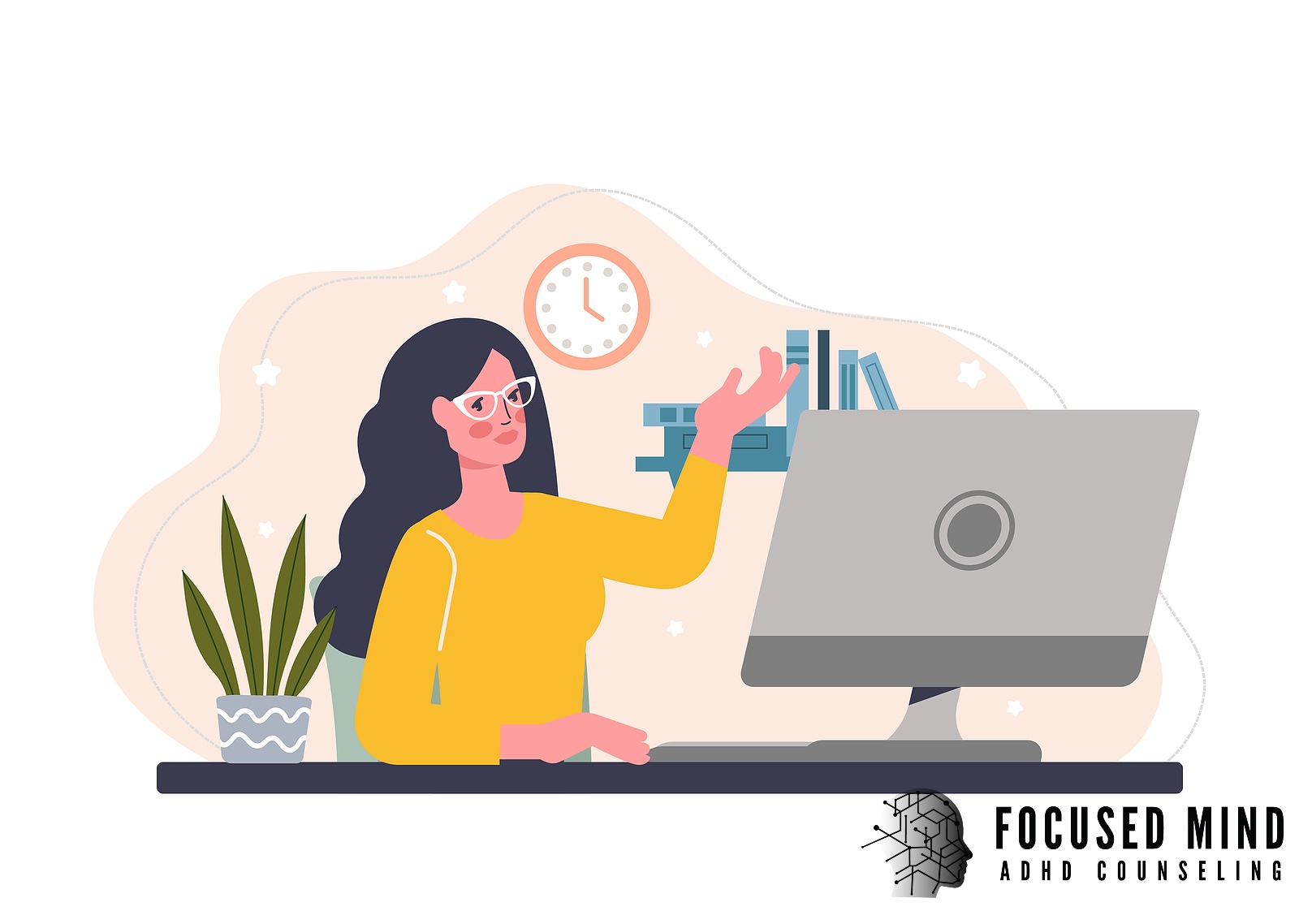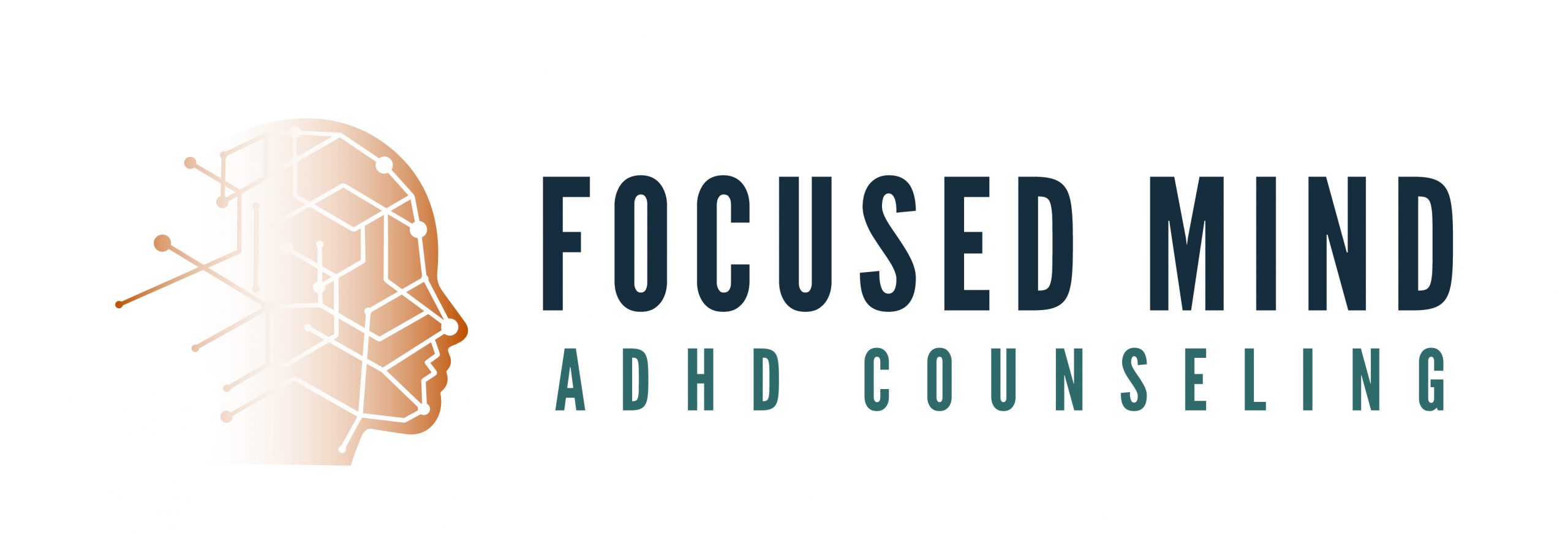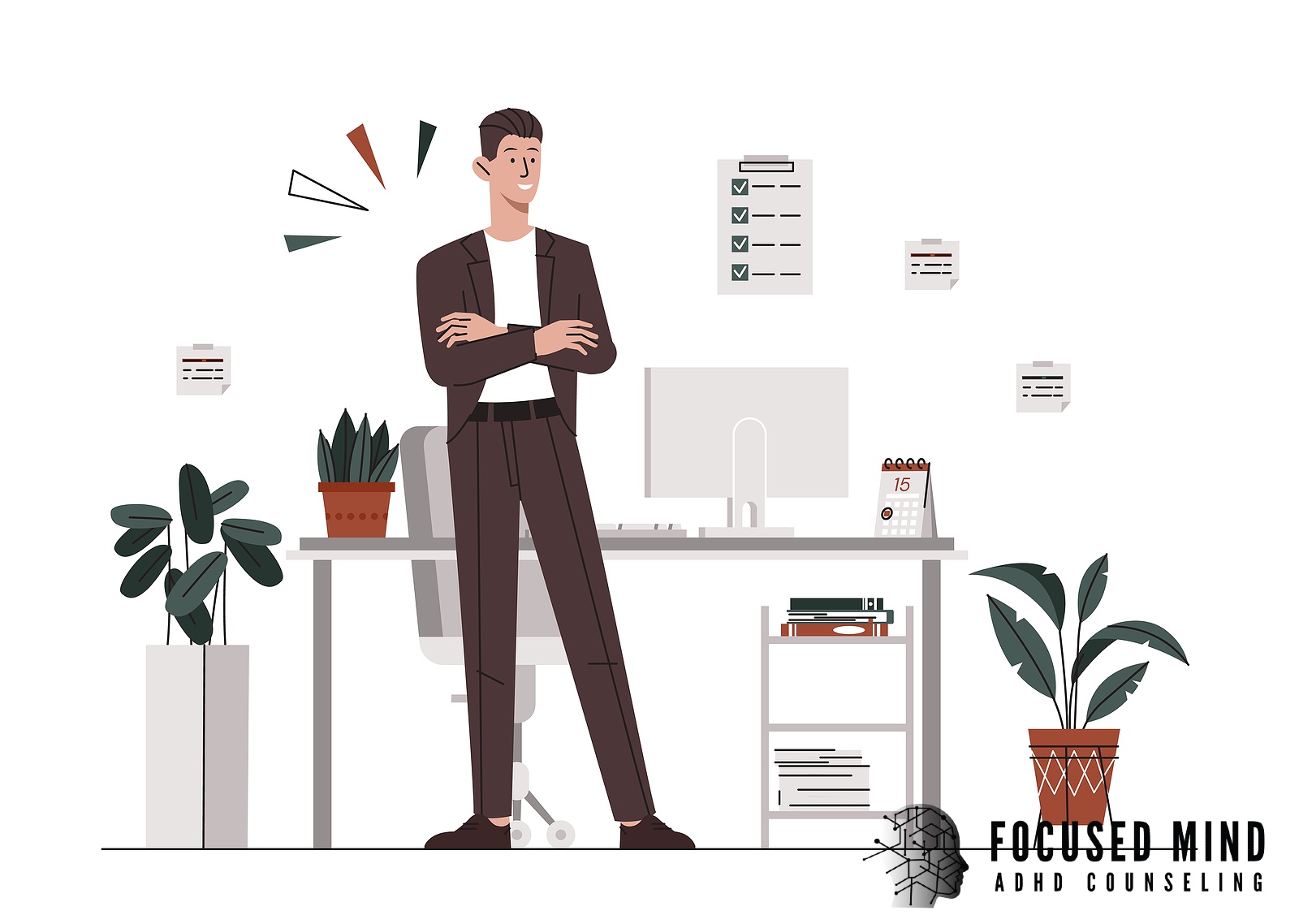
Have you hit a wall with your ADHD strategies? You’re not imagining it—this happens to many adults with ADHD. Medication, coping skills, and lifestyle changes can start to feel like they’ve “run their course.” It’s frustrating to work so hard and still feel like your tools aren’t enough to meet your potential. In this blog, we will address common reasons you may be stuck with your current ADHD management tools and how to get back on track.
Why Traditional ADHD Productivity Hacks Stop Working
Most people think of ADHD as an issue with attention. In reality, ADHD is a matter of motivation. You lose energy and interest over time. The ADHD brain cycles through periods of high and low productivity because dopamine is dysregulated in the ADHD brain. When something is new and exciting, things get done. That is, until they stop being new and exciting,
As soon as energy and motivation fade, many people with ADHD become incredibly hard on themselves. They begin to feel more broken and constantly wonder, “What is wrong with me?” Once the shame cycle begins, you lose structure. You stop exercising, eating right, and the lifestyle adjustments that support your ADHD brain also fade away.
Step One: Pause and Reset 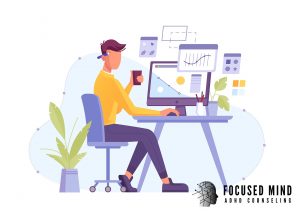
Before you buy another app or fancy notebook, check in with yourself. Is there anything you were using that was overly complicated? Can you simplify anything? Have any changes in your life thrown you off your routine? Most of the time, slightly modifying what has already worked for you is more effective than reinventing the wheel. Consider adding an element of novelty.
Step Two: Regulate
A 2020 study published in BMC Psychiatry found that 70% of adults with ADHD experience emotional dysregulation and rapid mood swings. Despite how common this is, everyday discussion of emotions and ADHD is usually overlooked. When strategies stop working, it’s often because emotions are unprocessed and unregulated.
To get better at using productivity hacks, improve your emotional regulation. To do this, have a strategy in place that helps put the rational brain (instead of the emotional brain) in the driver’s seat. One strategy to try is the STOP method. If you’re overwhelmed by feeling defeated: STOP and freeze for a moment, take a step back and check in with yourself, Observe what is happening in the moment, both inside (emotionally) and outside (what is triggering your emotions), and Proceed in a way that brings you further to your goals.
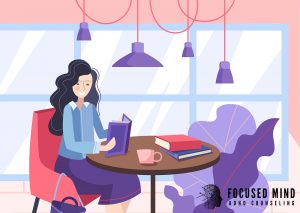 Step Three: Lifestyle
Step Three: Lifestyle
You might also be struggling with lifestyle stressors, such as poor sleep, poor diet, lack of activity, or poor self-care. These types of stressors might seem obvious in a fast-paced world, but losing ground to them can make coping skills less effective. Consider the acronym HALT, and ask yourself: are you Hungry, Angry, Lonely, or Tired? Each one of these traits speaks to a need you have as a human. Sorry to say this, but no notebook will work if the unmet need is extreme.
Step Four: Move More
For adults with ADHD, movement impacts the mind. Integrating more movement into your life can improve focus, energy, and effort. A quick and easy way to up your movement game is to schedule mini-breaks for movement. Schedule 5-10 minute bouts of movement in your day. Go for a walk, pace around the kitchen table, or do some sit-ups next to your desk. Consider scheduling a break for every hour of focused work.
Step Five: ADHD-Focused Therapy 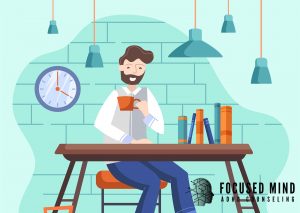
If you can’t seem to find motivation or stick to a structure, you don’t have to figure it out alone. ADHD-focused therapy helps you go deeper—beyond short-term fixes—to discover what truly works for your brain. With the right ADHD specialist, you’ll identify what’s blocking you and build new systems that finally stick, with real accountability and support along the way.
Key Takeaways
- It’s normal to “hit a wall” on your ADHD coping skills or treatment plan.
- ADHD can’t be sustained with “one size fits all approaches.”
- Commonly overlooked areas that impact ADHD people with ADHD are emotions, lifestyle, and “chasing the newest tools,” rather than building on what already works.
- ADHD-focused therapy can provide a holistic approach to identifying the root problems and finding a personalized path forward.
Begin Adult ADHD Treatment in Columbus, Ohio
Looking for more individualized support? You don’t have to feel stuck on your goals. ADHD-focused therapy can help you build momentum. Our counseling practice in Columbus, Ohio, has caring therapists who specialize in ADHD testing and ADHD treatment. To start your counseling journey with Focused Mind ADHD Counseling, follow these simple steps:
- Fill out the contact form to schedule a free 15-minute phone consultation.
- Meet with one of our caring therapists.
- Stop feeling stuck. Start getting things done.
Other ADHD Services Offered at Focused Mind ADHD Counseling
Adult ADHD treatment is not the only service we offer at our Columbus, OH counseling practice. At Focused Mind ADHD Counseling, we offer a variety of mental health services, including ADHD testing. As an adult with ADHD, you may also benefit from anxiety treatment for ADHD, counseling for men with ADHD, ADHD-focused couples counseling, or depression counseling for ADHD. You can also view our blog for more resources!
About the Author
Billy Roberts, LISW-S, LCSW, is a licensed psychotherapist and ADHD expert in Columbus, Ohio, specializing in ADD/ADHD in adults. He has been seen in Time Magazine, CNN, HuffPost, and Forbes discussing his unique approach to ADHD-focused therapy. See Full Bio.

